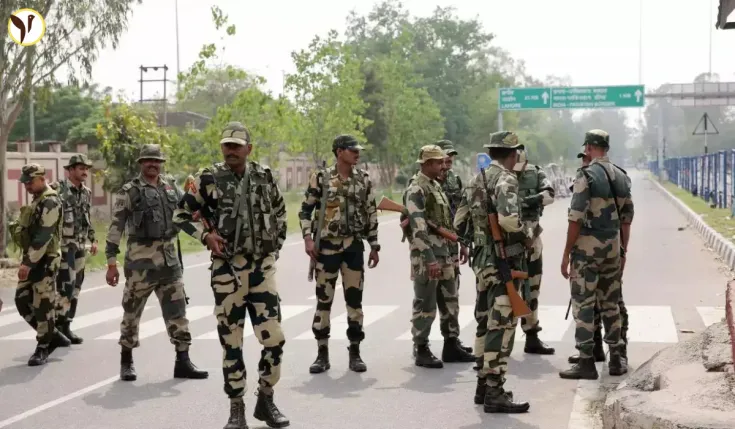```
Karachi Port: At the Heart of India-Pakistan Tensions
In early May 2025, the already volatile relationship between India and Pakistan took a dramatic turn. Following a devastating terror attack in Pahalgam, India launched what it termed “Operation Sindoor,” targeting alleged terrorist training camps across the border. This led to a rapid escalation, with Pakistan retaliating and claims of attacks on both sides flying fast and furious. One of the most sensational claims, spread through social media and some news outlets, involved a direct attack on Karachi Port, Pakistan's busiest port.
The Karachi Port: A Strategic Target
Karachi Port isn't just a shipping hub; it's a vital artery of Pakistan's economy and a key strategic asset. Its significance makes it a tempting target during times of conflict. Any disruption to its operations could have severe consequences for Pakistan's trade and economy. This explains the intense focus on the port amidst the recent tensions.
- Economic Lifeline: Karachi Port handles a vast amount of Pakistan's import and export trade.
- Logistical Hub: It's a crucial gateway for goods moving in and out of the country.
- Symbolic Importance: An attack on Karachi Port would send a powerful message about a nation's military capabilities.
Conflicting Narratives and the Information War
The situation surrounding alleged attacks on Karachi Port is shrouded in conflicting reports. Indian media outlets initially reported successful missile strikes, supported by purported video evidence later debunked as unrelated. These reports claimed significant damage to the port's infrastructure. However, the Karachi Port Trust (KPT) swiftly denied these claims, initially stating that operations were unaffected and later alleging that their social media accounts had been hacked to spread misinformation. This highlights the challenges of verifying information during times of heightened conflict and the potential for deliberate disinformation campaigns.
- Indian Media Reports: Claimed successful strikes on Karachi Port, citing unnamed sources and sometimes presenting misleading visuals.
- Pakistani Denial: The KPT categorically denied any damage, initially attributing the reports to a hacked account, later acknowledging damage.
- The Role of Social Media: Social media played a significant role in spreading both claims and counter-claims, adding to the confusion.
The Importance of Verified Information
The Karachi Port controversy underscores the critical need for responsible journalism and fact-checking during times of conflict. Consumers of news need to be extremely discerning and only rely on verified information from trustworthy sources. The spread of misinformation can be just as damaging as any military action, exacerbating tensions and undermining public trust. It is crucial to be cautious about information found on social media and to look for confirmation from reliable sources.
Conclusion: A Tense Standoff
The situation surrounding Karachi Port, and the broader India-Pakistan conflict, remains extremely fluid. The lack of official confirmation regarding the alleged attacks underscores the need for caution when interpreting news reports from conflict zones. The ongoing tensions emphasize the importance of reliable information sources and highlight the risks of escalating conflicts through misinformation. The events surrounding Karachi Port serve as a cautionary tale about the role of information in shaping perceptions and fueling conflicts.
```






